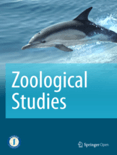
ZOOLOGICAL STUDIES
Scope & Guideline
Pioneering research for a sustainable future in zoology.
Introduction
Aims and Scopes
- Biodiversity and Taxonomy:
The journal emphasizes the documentation and description of new species and the taxonomic revision of existing species across various animal groups, including crustaceans, insects, mollusks, and more. - Ecological Studies:
Research often includes ecological assessments that investigate species interactions, habitat use, and the ecological roles of various organisms, contributing to the understanding of ecosystem dynamics. - Conservation Biology:
The journal publishes studies that address conservation strategies and the effects of human activities on wildlife, emphasizing the importance of preserving biodiversity and ecosystem health. - Phylogenetics and Evolutionary Biology:
Many articles focus on the phylogenetic relationships among species, utilizing molecular and morphological data to understand evolutionary patterns and processes. - Integrative Approaches:
The journal supports integrative methodologies that combine different scientific disciplines, such as genetics and ecology, to provide comprehensive insights into biodiversity and species interactions.
Trending and Emerging
- Molecular Ecology and Genetics:
There is an increasing focus on molecular techniques to assess genetic diversity, population structure, and evolutionary relationships among species, which enhances the understanding of biodiversity at a genetic level. - Climate Change Impacts:
Research addressing the effects of climate change on species distributions, ecological interactions, and physiological responses is gaining traction, underscoring the urgency of climate-related studies in zoology. - Conservation Genomics:
The application of genomic tools in conservation biology is emerging as a critical area, helping to inform conservation strategies and enhance the management of threatened species. - Behavioral Ecology:
A growing number of studies are exploring behavioral adaptations of species in response to environmental changes, highlighting the importance of behavioral ecology in understanding species survival. - Human-Wildlife Interactions:
Research examining the dynamics of human-wildlife interactions, including the impacts of urbanization and habitat alteration on wildlife, is increasingly relevant and appears to be a growing focus.
Declining or Waning
- Traditional Morphological Studies:
There appears to be a decreasing emphasis on purely morphological studies of species, as integrative approaches that combine molecular techniques gain popularity. - Invasive Species Research:
Although still relevant, research specifically focused on invasive species impacts has become less prevalent, possibly overshadowed by broader ecological and conservation studies. - Generalized Ecological Surveys:
There has been a shift away from generalized ecological surveys towards more targeted studies that focus on specific species interactions or habitat assessments, reflecting a trend towards more detailed and nuanced research.
Similar Journals
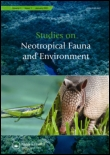
STUDIES ON NEOTROPICAL FAUNA AND ENVIRONMENT
Innovating Research for a Sustainable FutureSTUDIES ON NEOTROPICAL FAUNA AND ENVIRONMENT is a distinguished academic journal published by Taylor & Francis Ltd, dedicated to advancing the fields of Animal Science, Zoology, and Ecology. With an ISSN of 0165-0521 and an E-ISSN of 1744-5140, this journal has been a significant outlet for scholarly research since its inception in 1976, continuing to provide critical insights into neotropical biodiversity and the environmental intricacies of this rich ecological region through 2024. Recognized in the Q3 category for both Animal Science and Ecology, the journal ranks at #232/490 in Animal Science and Zoology and #402/721 in Ecology, marking it as a valuable resource for researchers, professionals, and students interested in ecological and zoological studies. By offering a platform for innovative research and comprehensive reviews, the journal aims to bridge the gap between theory and practical application, facilitating a deeper understanding of the unique challenges and conservation strategies relevant to neotropical ecosystems. Although not an open-access journal, it plays a crucial role in fostering academic discourse and knowledge dissemination in its field, ensuring that critical advancements in understanding neotropical fauna and environmental dynamics reach a diverse and engaged audience.
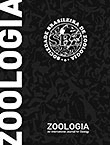
Zoologia
Bridging Science and ConservationZoologia, published by the SOC BRASILEIRA ZOOLOGIA and UNIV FEDERAL PARANA, is a premier open-access journal dedicated to the field of zoology and related disciplines. Established in 2009 and based in Brazil, this journal has quickly positioned itself as a vital resource for researchers, professionals, and students, providing a platform for innovative research and comprehensive reviews in animal science and zoology. With an H-index indicative of its growing citation impact and a current Scopus ranking placing it in the 46th percentile of its category, Zoologia focuses on increasing the visibility and accessibility of cutting-edge zoological research. The journal aims to advance the understanding of animal biology, ecology, and conservation, making it an essential read for those invested in animal science. As an open-access publication, it ensures that knowledge dissemination is unrestricted, fostering a collaborative scientific community striving towards impactful conservation and biodiversity initiatives.
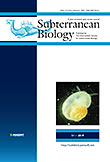
Subterranean Biology
Exploring the Depths of Life Beneath Our FeetSubterranean Biology is a premier open-access journal published by the International Society of Subterranean Biology, dedicated to advancing knowledge in the field of subterranean ecosystems. With an impact factor that reflects its significance in the academic community, this journal has achieved a commendable ranking of Q1 in Animal Science and Zoology and Q2 in multiple categories including Ecology, Evolution, Behavior and Systematics, Nature and Landscape Conservation, and Soil Science, based on its 2023 category quartiles. Located in Bulgaria and affiliated with the Department of Animal Biology at the University of Rome, the journal has been fostering open scientific discourse and accessibility since 2011. With its ISSN 1768-1448 and E-ISSN 1314-2615, it aims to provide a platform for researchers and students to explore the complexities of subterranean life forms and their ecological implications. By publishing a wide range of research articles, reviews, and case studies, Subterranean Biology empowers its readers to delve deeper into the hidden realms of our natural world.
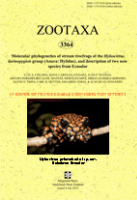
Zootaxa
Advancing biodiversity knowledge through rigorous research.Zootaxa is a prestigious peer-reviewed journal dedicated to the rapid publication of new taxa and biodiversity research in the fields of Animal Science and Zoology as well as Ecology, Evolution, Behavior, and Systematics. Published by Magnolia Press in New Zealand since 2005, this journal holds a significant position within the academic community, holding a Q2 ranking in key categories as of 2023. With an ISSN of 1175-5326 and E-ISSN of 1175-5334, Zootaxa is indexed in Scopus, reflecting its impact and relevance in contemporary research. While it operates under a subscription model, the journal remains committed to advancing the understanding of biodiversity and the systematic classification of organisms. Researchers, professionals, and students can rely on Zootaxa for high-quality research that contributes to the ongoing dialogue in taxonomy and ecological studies, as it aims to foster collaboration and knowledge sharing among scientists globally.
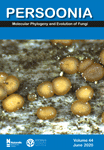
PERSOONIA
Connecting Scholars through High-Impact ResearchPERSOONIA, a distinguished journal published by RIJKSHERBARIUM, serves as a pivotal platform for the dissemination of high-quality research in the fields of Ecology, Evolution, Behavior, and Systematics, as well as Plant Science. Established with a commitment to advancing scientific knowledge, PERSOONIA has achieved an impressive Q1 ranking in these areas, highlighting its significant impact within the academic community, as evidenced by its ranking of #12 out of 721 journals in its field, placing it in the top 2% of publications. With a publication history that spans from 1996 to present, the journal regularly features innovative studies that push the boundaries of understanding in ecological and botanical sciences. While Open Access options are currently limited, researchers and professionals alike benefit from subscription access to this vital resource. Located in the Netherlands, PERSOONIA continues to be a beacon for scholars aiming to enrich the discourse in evolving ecological and plant science disciplines.

ACTA ZOOLOGICA BULGARICA
Advancing the Frontiers of Zoological ResearchACTA ZOOLOGICA BULGARICA is a prominent academic journal dedicated to advancing knowledge in the fields of Animal Science, Zoology, Aquatic Science, Ecology, Evolution, Behavior, and Systematics. Published by the Institute of Zoology, Bulgarian Academy of Sciences, this journal serves as an invaluable platform for researchers, professionals, and students to disseminate their findings and engage with contemporary issues in biodiversity and ecology. With an established history since its convergence in 2010 and an ongoing publication schedule through to 2024, the journal holds a Q4 category ranking in multiple disciplines, highlighting its role in fostering scholarly communication in these areas despite its recent entry into Scopus-indexed rankings. Although currently not an open-access journal, ACTA ZOOLOGICA BULGARICA remains a key resource for those interested in the latest research and developments, particularly within the ecological and zoological landscapes of Europe and beyond.
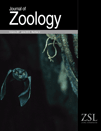
JOURNAL OF ZOOLOGY
Advancing knowledge in animal biology and ecology.JOURNAL OF ZOOLOGY, published by Wiley, stands as a premier scholarly journal in the fields of Animal Science and Zoology, renowned for its outstanding contributions to the knowledge of animal biology and ecology. With an impressive impact factor and a strong ranking in the Q1 category for Animal Science and Zoology, as well as Q2 for Ecology, Evolution, Behavior, and Systematics, the journal rigorously engages with both foundational research and groundbreaking discoveries since its inception in 1830. Located in Hoboken, New Jersey, this journal is dedicated to fostering the academic community's understanding of zoological sciences, providing access to important research that shapes wildlife conservation efforts and ecological studies. Although the journal does not currently offer open access options, it continues to attract significant attention, as evidenced by its strong Scopus rankings in related categories. Researchers, professionals, and students will find invaluable resources in the JOURNAL OF ZOOLOGY to advance their understanding of animal life and the ecological challenges it faces today.
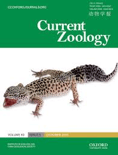
Current Zoology
Transforming Understanding of Animal LifeCurrent Zoology, published by Oxford University Press, is a leading open-access journal dedicated to advancing the field of zoology and animal science since its establishment in 2009. With an impressive Q1 ranking in Animal Science and Zoology as of 2023, the journal maintains a prominent position within the academic community, supported by a ranking of #138 out of 490 in Scopus. Current Zoology serves as a vital platform for researchers, professionals, and students, showcasing high-quality research that spans a broad array of topics within the domain of zoology. This journal is characterized by its rigorous peer-review process, ensuring the dissemination of credible and impactful findings that contribute to the understanding of animal biology and conservation efforts. The open-access model enhances accessibility, allowing a wider audience to engage with the pivotal research being conducted in this dynamic field. Processing all manuscripts in an efficient manner and featuring articles that push the boundaries of current knowledge, Current Zoology is your gateway to explore innovative discoveries and trends in zoology.
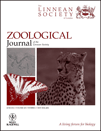
ZOOLOGICAL JOURNAL OF THE LINNEAN SOCIETY
Illuminating the wonders of zoology since 1866.Zoological Journal of the Linnean Society, published by Oxford University Press, stands as a prestigious vessel for scholarly discourse in the fields of Animal Science and Ecology. With an ISSN of 0024-4082 and E-ISSN 1096-3642, this journal has an illustrious history dating back to its inception in 1866, and has consistently contributed groundbreaking research that shapes our understanding of zoology and evolutionary biology. Operating out of the United Kingdom, the journal boasts an impressive Q1 ranking in both Animal Science and Zoology and Ecology, Evolution, Behavior and Systematics, positioning it among the top tier of its category. With a significant presence in the academic landscape, the journal ranks 24th among 490 in Animal Science and 97th among 721 in Ecology, reflecting its impact and relevance in the field. Although it is not an open access journal, the wealth of knowledge it offers is invaluable for researchers, professionals, and students alike, aiding in the advancement of zoological sciences.
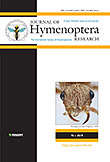
JOURNAL OF HYMENOPTERA RESEARCH
Bridging Knowledge Gaps in Insect EcologyJOURNAL OF HYMENOPTERA RESEARCH is a leading open-access publication dedicated to the advancement of knowledge in the fields of Insect Science, Animal Science and Zoology, and Ecology. Published by Pensoft Publishers since 2011, this journal plays a critical role in facilitating the exchange of significant research findings and insights related to Hymenoptera, a diverse order of insects that includes bees, wasps, and ants. With a commendable impact factor and ranked in the Q1 category for Insect Science and Animal Science, the journal stands out within the scientific community, drawing contributions from researchers globally. Boasting an ISSN of 1070-9428 and an E-ISSN of 1314-2607, the journal not only ensures broad accessibility to its content but also fosters a collaborative environment for professionals and students alike to engage with pioneering research. By reflecting on the converged years of 2007-2024, the JOURNAL OF HYMENOPTERA RESEARCH remains a vital resource for understanding the ecological and evolutionary dynamics of this important group of insects, solidifying its position as a cornerstone in entomological studies.